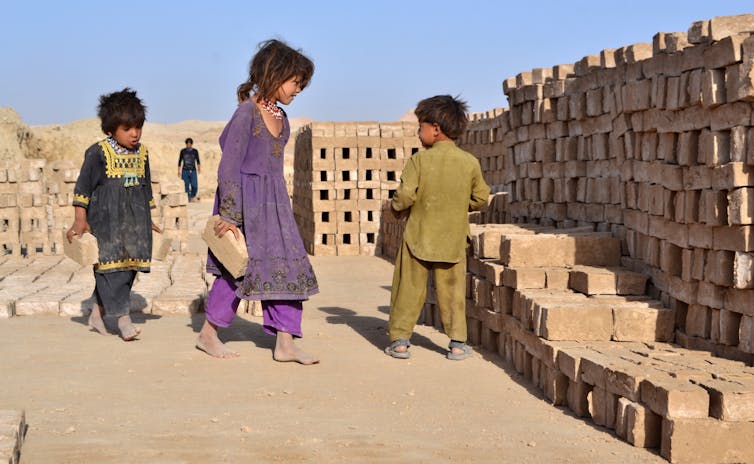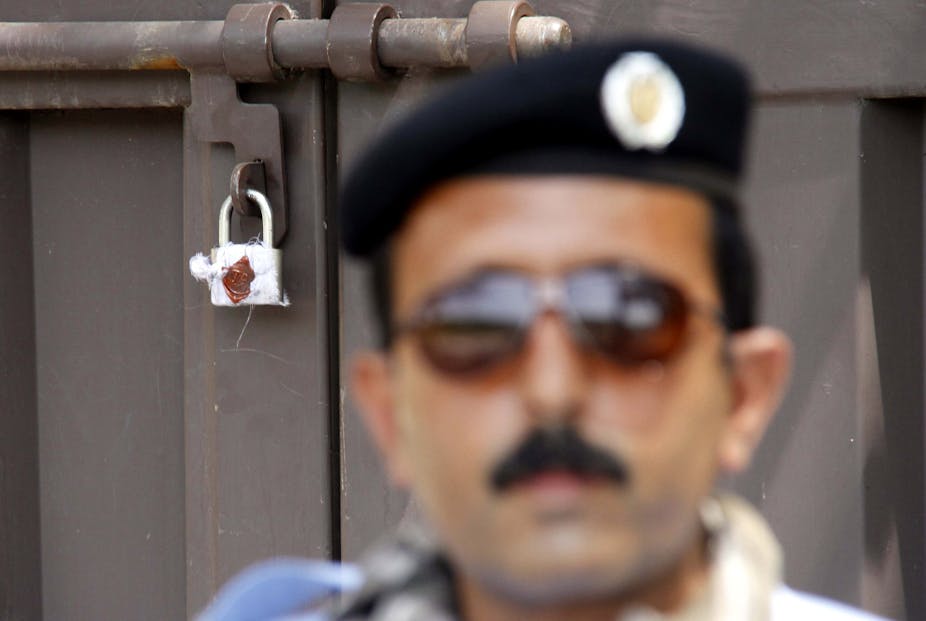In the space of a few days, the Pakistani government first closed down Save the Children’s offices in Islamabad and then re-opened them without explanation.
This is not the charity’s first run-in with the Pakistani authorities. It has been operating in Pakistan since 1979 and has not been in the government’s good books in recent years. In 2012, a Pakistani intelligence report claimed that the charity was involved in a fake vaccination programme used by the CIA to track down Osama bin Laden.
Even though Save the Children denied it had knowingly participated, Islamabad forced the organisation’s foreign staff to leave the country – and its activities have been monitored by the Pakistani state ever since.
But given those events happened three years ago it’s not clear why the government suddenly took the drastic step of completely closing the charity down, nor why it re-opened it.
Information vacuum
The official memo released by Pakistan’s Economic Affairs Division on June 12 did not offer any clues, simply saying that
The competent authority has been pleased to decide that M/s Save the Children International be asked to wind up its offices/operations in Pakistan forthwith and also issue direction to its expatriates to leave Pakistan within 15 days positively.
With an information vacuum on its hands, the Western media did what it usually does: it portrayed Pakistan as paranoid about its domestic security.
Many sources quoted the interior minister, Chaudhry Nisar, telling a press conference that “intelligence reports” had suggested that international NGOs funded by the US, Israel and India were “involved in working on an anti-Pakistan agenda” – even though no details of how Save the Children might be involved were given.
Of course, Pakistan does have serious and legitimate security concerns: no-one could forget the Taliban’s December 2014 attack on a school in Peshawar, which killed more than 100 students. And the country’s efforts to deal with security threats regularly put its government and security forces in conflict with respect for human rights.
But there’s another, more prosaic side to the dispute that’s been largely overlooked: public relations.
Image control
For example, the Pakistani government’s decision to end a moratorium on the death penalty (temporarily re-imposed for Ramadan) has been sharply criticised by governments and rights activists, and that in turn has annoyed government officials.
Relations between Western NGOs and the Pakistani government seem to have reached rock bottom – and many organisations besides Save the Children are complaining of increasing hostility and suspicion from the state.
It is of course naïve to assume that charities will be welcomed with open arms wherever they go. They have to grapple with difficult issues of state sovereignty and national laws. Equally, many countries in the developing world have serious political and security problems to deal with and want to know that foreign organisations operating on their soil are regulated so that their activities do not go against their national interests.
In many places, this is dealt with via legislation. In India, for example, there are specific laws, rules and regulations with which foreign charities must comply. But whereas India’s regulations are relatively uncontroversial, Pakistan’s more muscular approach, which requires charities to sign memoranda of understanding making their plans and funding models explicit, is not welcomed by the foreign charities working there.

Save the Children has been working in Pakistan for more than 30 years, often assisting children and families in the aftermath of emergencies. The need it serves is acute. Its website offers some “Facts about Pakistan”, where the average girl stays in school only until she is seven years old, 86 of every 1,000 children die before their fifth birthday and a parent earns an average of just $3 a day.
These facts target potential donors and Western publics, for whom NGOs are the “conscience of the world” – but they also damage Pakistan’s already poor global image. That does no good for national pride – and it fuels resentment of what is seen as neo-imperialism on the part of Western charities.
The unflattering truth
When the expulsion was first announced, Save the Children issued a statement saying its work has not only helped thousands of children, but that it is “designed and delivered in close collaboration with the government ministries across the country and aims to strengthen public service delivery systems in health, nutrition, education and child welfare”.
This is not hard to believe; NGOs and UN agencies work very closely with government ministries all over the developing world, as I have seen myself while conducting research in India. Governments, including Pakistan’s, know perfectly well that international development co-operation is vital for achieving the Millennium Development Goals, as well as the new sustainable development goals that will be adopted by the UN later this year.
Charities and NGOs can make a positive contribution in developing countries provided they are able to maintain good relations with the government and abide by the laws of the state, but the developing countries who need their help can’t have it all.
Where universal values and human rights are at issue, NGOs are perfectly entitled to put pressure on states and their governments and to publicise unflattering facts about them – even if those countries understandably resent external pressure on the way they govern their countries.

